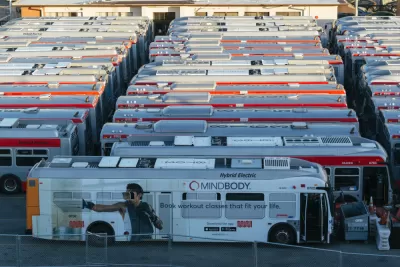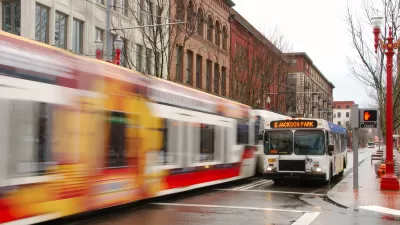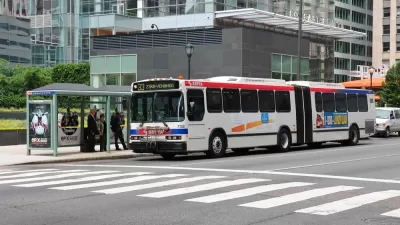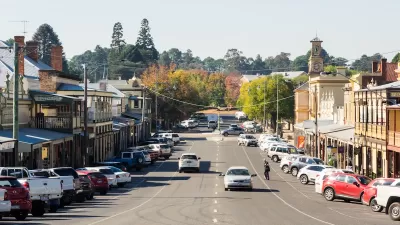Across U.S. cities, transit agency boards are overwhelmingly more suburban than their riders, causing a disconnect between decisionmakers and the people who regularly use transit.

As a new participant to their meetings, Cam Hardy, president of the Better Bus Coalition, noticed something about the board of the Southwest Ohio Regional Transit Authority, writes Jake Blumgart. They were, in Hardy’s words, “Very white, very corporate and very resistant to change. Just cutting this and that [transit service] without really analyzing why a route might not be working.” Most of them, Hardy said, did not use transit themselves.
“This is not an unusual dynamic, a new study from TransitCenter shows. The advocacy and research group studied transit agencies across 11 cities — Cincinnati not among them — and found that their boards were not representative in terms of gender, race or geography.” According to the study, “In New York, 88 percent of riders live in the city but only 18 percent of board seats go to their representatives.” On average in the study cities, 75 percent of riders lived in central cities, with 40 percent of board appointments going to those jurisdictions. Meanwhile, many boards hold meetings at times inconvenient to working people, making it more difficult for transit riders to participate.
Like other advocates around the country, Hardy’s organization fought for years to make changes to the SORTA board. “They got half of the meetings changed to evening hours, so work-a-day residents can attend. There are now regular bus riders on the board, who can speak to their lived experiences on the system.”
As Blumgart notes, “In an era of partisan polarization around transportation policy, it can be important to have boardmembers who can speak on transit’s behalf in spaces like state legislatures that tend to be dominated by conservative, white and non-urban political forces.”
FULL STORY: There’s a Big Difference Between Transit Boards and Riders

Planetizen Federal Action Tracker
A weekly monitor of how Trump’s orders and actions are impacting planners and planning in America.

Maui's Vacation Rental Debate Turns Ugly
Verbal attacks, misinformation campaigns and fistfights plague a high-stakes debate to convert thousands of vacation rentals into long-term housing.

San Francisco Suspends Traffic Calming Amidst Record Deaths
Citing “a challenging fiscal landscape,” the city will cease the program on the heels of 42 traffic deaths, including 24 pedestrians.

Defunct Pittsburgh Power Plant to Become Residential Tower
A decommissioned steam heat plant will be redeveloped into almost 100 affordable housing units.

Trump Prompts Restructuring of Transportation Research Board in “Unprecedented Overreach”
The TRB has eliminated more than half of its committees including those focused on climate, equity, and cities.

Amtrak Rolls Out New Orleans to Alabama “Mardi Gras” Train
The new service will operate morning and evening departures between Mobile and New Orleans.
Urban Design for Planners 1: Software Tools
This six-course series explores essential urban design concepts using open source software and equips planners with the tools they need to participate fully in the urban design process.
Planning for Universal Design
Learn the tools for implementing Universal Design in planning regulations.
Heyer Gruel & Associates PA
JM Goldson LLC
Custer County Colorado
City of Camden Redevelopment Agency
City of Astoria
Transportation Research & Education Center (TREC) at Portland State University
Jefferson Parish Government
Camden Redevelopment Agency
City of Claremont





























